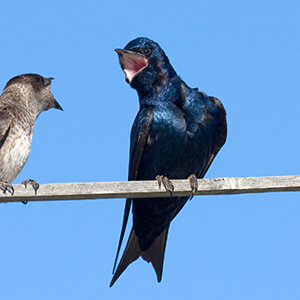Save Our Swallows Resources
Swallows, like other birds that are commonplace in our rural landscapes, require committed support from responsible stewards to create conditions that encourage successful reproduction during their breeding seasons.
We have developed multiple resources to help stewards like yourself with their own personal stewardship projects. Please take a second to go over the resources listed below to find the one most suitable for your own individual needs.
Your Guide to Native Ontario Plants
Download your guide to native plants that increase flying insect population and help our birds!
Grasslands and Rural Living
Download your Guide for Ontario’s grassland bird stewards today!
Get your own Swallow and Rural Living Poster
Aerial Insectivore Populations in Canada Workshop
By 2020, 9 of the 31 species in this guild were listed under Canada’s Species at Risk Act. In March 2020, individuals from academia, government, and a non-profit organization convened for a 2-day workshop in Saskatoon, Saskatchewan to critically evaluate mechanisms underlying the declining population trends of aerial insectivores. Read the report from the March 2020 Aerial Insectivore Workshop in Saskatoon.
Beneficial Management Practices of Ontario’s Swallows
There are six species of swallows that are native to Ontario. These migratory aerial insectivores spend the winter months in foraging in South America and return back to Ontario starting in the spring months. Once they are here, they provide many bird enthusiasts in the rural landscape of Ontario an opportunity to observe them while they feed and breed over the next few months, until eventually, they return back south in the fall.
While it is well-known amongst naturalists and bird enthusiasts that the populations of swallows, along with the majority of the other aerial insectivores, have been declining at an alarming rate since the 1970s. The next step is to identify and implement beneficial practices to help Ontario’s populations of swallow species to be able to rebound, especially in the rural regions of the southern Great Lakes region of Ontario. For that purpose, Nature Canada and Bird Studies Canada has created a list of Beneficial Management Practices (BMP) for each of the six swallow species that are found in the province.





